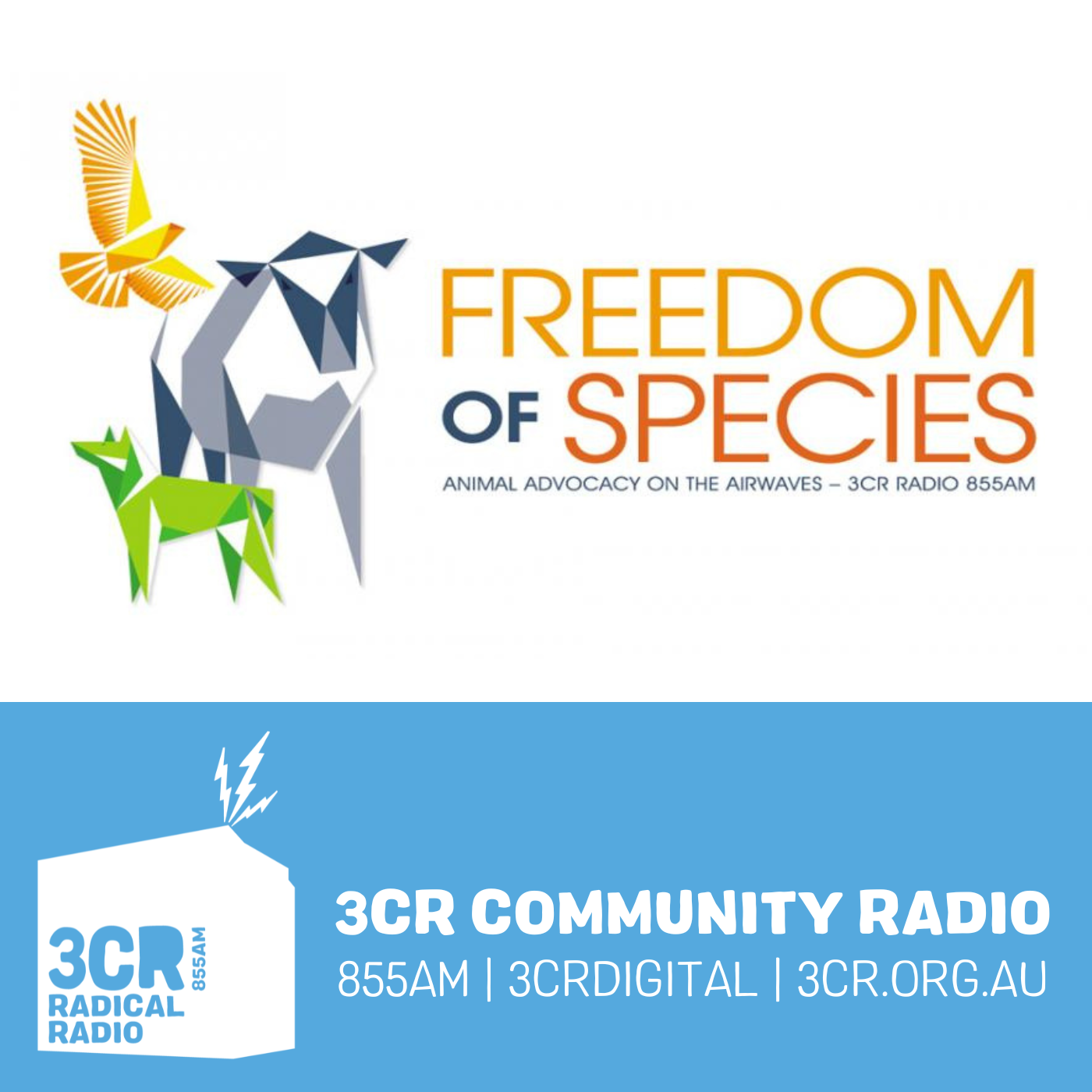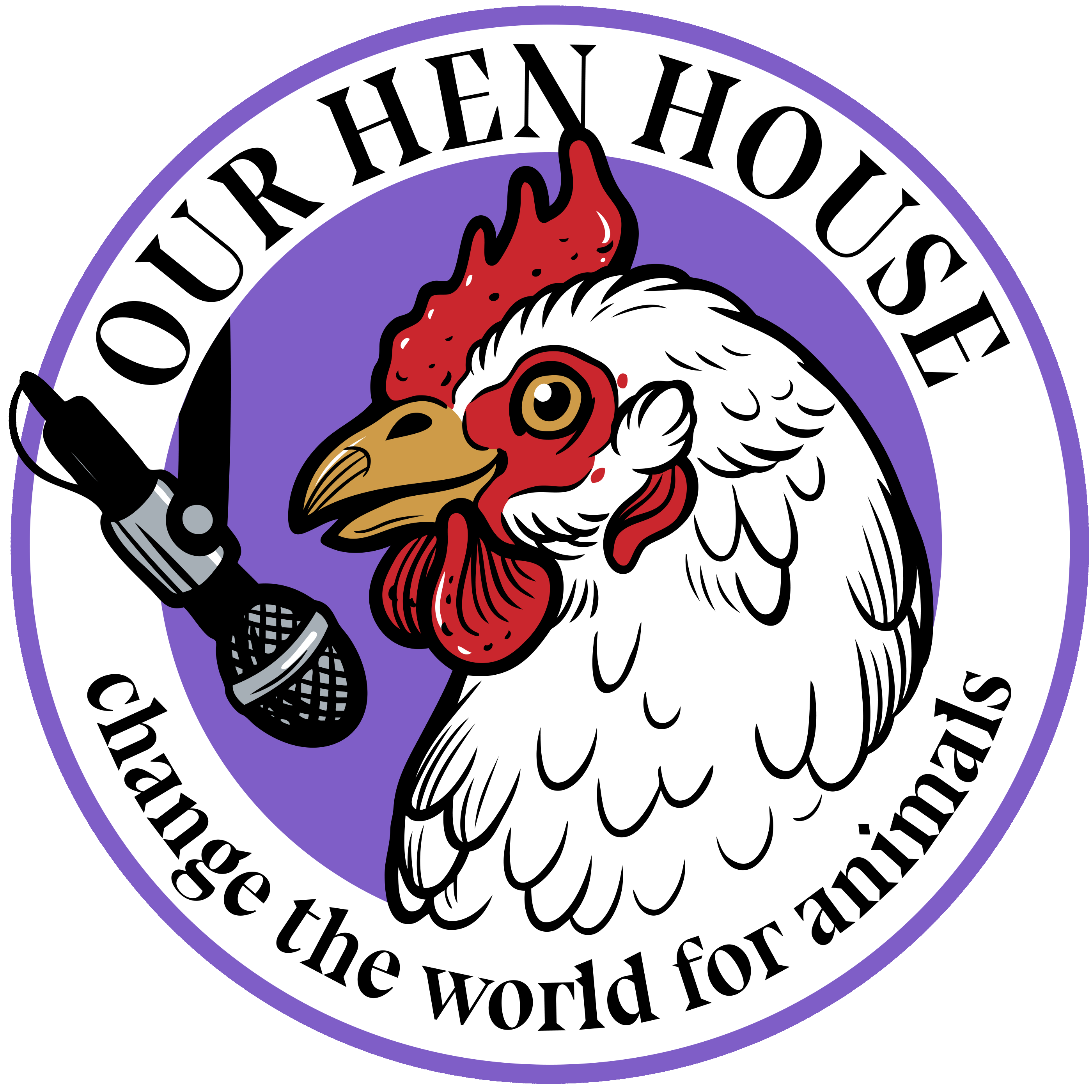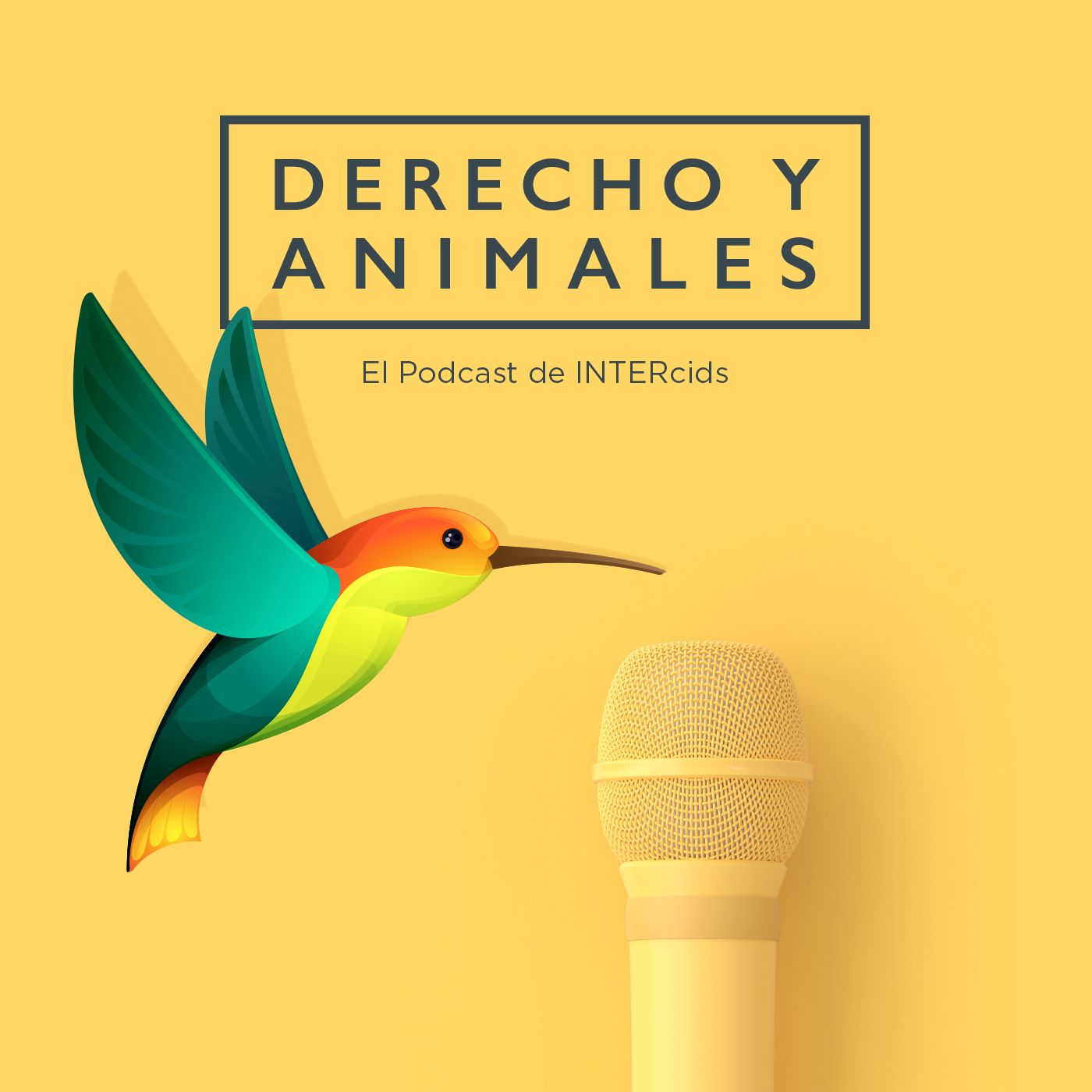
The Animal Turn
Animals are increasingly at the forefront of research questions – Not as shadows to human stories, or as beings we want to understand biologically, or for purely our benefit – but as beings who have histories, stories, and geographies of their own. Each season is set around themes with each episode unpacking a particular animal turn concept and its significance therein. Join Claudia Hirtenfelder as she delves into some of the most important ideas emerging out of this recent turn in scholarship, thinking, and being.
The Animal Turn
S5E10: Grad Review with Oliver French and Amanda Bunten-Walberg
In this final episode of the season Claudia talks to Amanda Bunten-Walberg and Oliver French, two fellow graduate students with interests in biosecurity. They delve into some the core themes in the season (including questions about scale, reproduction, and power) as well as some of the difficulties for thinking about biosecurity and animals.
Date Recorded: 27 January 2023
Amanda (Mandy) Bunten-Walberg (she/ her) is a PhD Candidate at Queen's University's School of Environmental Studies. Her research explores more-than-human ethics in contagious contexts through the case study of bats and COVID-19. In particular, Mandy is interested in how more-than-human ethics, critical race theory, queer theory, and biopolitical theory might guide humans towards developing more ethical relationships with bats and other (human and more-than-human) persons who are dominantly understood as diseased. Connect with Amanda via email (19abbw@queensu.ca).
Oliver French is a 3rd year PhD student at the University of St-Andrews, working as part of the Welcome Funded Global War Against the Rat project. His BA thesis explored the production and application of eco-governmental power within Swedish National Parks. His current research develops a historical-ethnography of human-rat relations in epidemic of control during the third plague pandemic with a focus on India, where he is currently on archival fieldwork. Find out more about Oliver on the St. Andrews website.
Featured:
- Avian Reservoirs: Virus Hunters and Birdwatchers in Chinese Sentinel Posts by Frédéric Keck
- Viral Economies: Bird Flu Experiments in Vietnam, by Natalie Porter
- Some “F” words for the environmental humanities: feralities, feminisms, futurities by Catriona Sandilands
- Animal Intimacies: Interspecies Relatedness in India's Central Himalayas by Radhika Govindrajan
- Mulberry Intimacies and the Sweetness of Kinship, by Catriona Sandilands
- What Comes after Entanglement? Activism, Anthropocentrism, and an Ethics of Exclusion by Eva Haifa Giraud
Animals in Politics, Law, and Ethics researches how we live in interspecies societies and polities.
Biosecurities Research Collective
The Biosecurities and Urban Governance Research brings together scholars interested in biosecurity.
iROAR Network
iROAR brings together podcasts that aim is to make the world a better place for animals.
Disclaimer: This post contains affiliate links. If you make a purchase, I may receive a commission at no extra cost to you.
The Animal Turn is hosted and produced by Claudia Hirtenfelder and is part of the iROAR Network. Learn more on our website.
- Leave a Review on Podchaser
- Check out The Animal Turn Merch.
- Support us on Patreon, Buy Me a Coffee, and Buzzsprout.
00:00 - Introduction
- Final episode of the season
- Guests today are Amanda Bunten-Walberg and Oliver French
06:10 – Welcome
- Oliver is in Delhi doing the fieldwork in archives in India focusing on rats during the third plague pandemic, working with Christos Lynteris
- Archives are so cool
- Amanda is looking at the lives of bats and hoping to explore how human-beings can form more ethical connections with bats, as well as other humans and non-humans thought of as “diseased”
- Rats and bats are often thought of as diseased.
10:53 - Methods and methodologies
- Multispecies historical ethnography as a method
- A philosophical and theoretical engagement and multispecies audio-ethnography, as a method
- Mandy has a bat detector to try and understand and thinking about bats, and it is so cool
- How sound can make the ‘invisible’ visible
- So often in historical work involves a distancing from the animals you encounter
- Historical ethnography looks at the almost mundane things that people write about
- The idea of traces and looking at animals and how animals appear
18:43 - Biosecurity and values
- Big concept with a lot of variety
- Power, biases, and assumptions came up throughout the season and it is clear that biosecurity is not value neutral
- Biosecurity is used b the dominant class to control life
- A lot of implicit value judgements about whose lives matter and whose lives are disruptive to dominant orders
- Values was a central theme in this season, the idea of “Making Life Safe” brings this forward
- Discussions about biosecurity seemed to be restricted to specific places
- Ideas of marginalization, whose life is allowed to be intervened upon
22:50 – Multi-scalar
- Seems like you have to talk about the local, national and international
- Conversation with Jeff Sebo, what scale do you start to consider welfare. If you look at rats at the population level they seem to be flourishing but if you consider how they live they endure “atrocities”
- Getting stuck in a single scale can obscure questions.
- Gladys focused on the local whereas with Nina she had to think global
- This scales are always happening with one another
- The national frameworks and how they manage biosecurity, very clear in Camille’s episode and how discourse is used to mobilize action
- The borders are always exceeded, Chi-Mao showed how U.S. policy shaped Taiwanese policies
- Avian Reservoirs: Virus Hunters and Birdwatchers in Chinese Sentinel Posts by Frédéric Keck
- Viral Economies: Bird Flu Experiments in Vietnam, by Natalie Porter
- Rhetorics of the preservation of life are very powerful and has biases
- This is why biopolitics works, “Who would want to get in the way of saving life?”
29:16 – Reproduction and Control over Life
- “What are we sustaining here? Are we sustaining life or are we sustaining the means by which we can consume something?” Claudia
- Some “F” words for the environmental humanities: feralities, feminisms, futurities by Catriona Sandilands
- Cormorants, transgressive birds who are reproductively successful so they are villainized
- Dominant culture wants nature to flourish as long as it doesn’t go outside of human control
- Control of animals who we reproduce in controlled spaces like farms and control of animals reproduction who are also viewed as transgressive
- Population of gorillas are growing but then they have nowhere to go
33:30 – Vilification, Pests and Violence
- How quickly the transfiguration from charismatic species or companion species into pesthood happens so quickly and with such terrible violence
- Pesthood is not just restricted to animals but also to humans who exceed or are feared to act in potentially transgressive ways
- Pest category is very important, no one is safe when this discourse starts rolling
- Epidemiological was salient here in disrupting these
- Theme so far: values, vilification, scales and bordering, reproduction, and how life is managed
37:50 – Idealized Ecologies and Indigenous knowledges
- Raised by Lauren van Patter
- The idea of preserving and creating ideal, aesthetic landscapes
- Biodiversity metrics are also tied to idealized ecologies
- So much is about animals who disrupt people’s imaginaries of what is threatened.
- So much about this is shaped through nationalized ideals, also used in colonial settler violence discourses
- A sort of “green-washing” of Indigenous landscapes, seen in New Zealand
- “What life where to preserve,” Oliver
- Anishinaabe teachings are about asking relational questions about what responsibilities are needed, rather than static, idealized ecologies
41:30 – Standardization and Intensification
- The more we consume, the more biosecurity we need
- There is a standardization of landscapes, life, responses. Only a finite way in which you can respond.
- And the standardization of animals’ at a species level
- A black rat is viewed as the same in New Zealand and India and this obscures how relationships are formed in situ
- Animal Intimacies: Interspecies Relatedness in India's Central Himalayas by Radhika Govindrajan
- Local versus urban rhesus macaques
- Standardization of results in testing but across species
- “Cannot justify standardization if you look at someone as a vibrant individual,” Amanda
46:00 - Intimacy and Respect
- Intimacy important for the spreading of diseases and violence
- Mulberry Intimacies and the Sweetness of Kinship by Catriona Sandilands
- We need to be aware of these violences but it can also be a transformative space, such as we saw in Gladys’ episode
- You can be apathetic and intimate, you also need respect
- Jeff Sebo spoke about autonomy and justice
49:30 – One Health Tensions
- One Health runs the risk of flattening difference
- We are not uniformly affected
- The vagueness of how humans and animals are in contact
- Differential risks people and animals face, you need to pay attention to the materiality of these interactions
- What Comes after Entanglement? Activism, Anthropocentrism, and an Ethics of Exclusion by Eva Haifa Giraud
- When you have to make decisions, care and compassion can sometimes shut down conversations
- Another tool in a welfare model designed to use animals, that possibly prolongs biosecurity events
- The importance of policy
- How do we shift the idea that humans are in top or in control
53:48 – Policy and Power
- Biosecurity being weaponized against activists through the discourse of biosecurity.
- Law and regulation ran throughout the season
- Difficult to make these decisions
44:30 – Antibiotics, Ecologies, and Technological Fixes
- The ways in which these chemicals leak out into different ecosystems, such as the vulture die off in India
- But technology, when housed within a shift with values, it can be transformative and valuable
- Once technology exists you can’t control how it is used
- Need more thought
- Pig-facial recognition technology, incredible money and skill
- “Entering with skepticism is a healthy point of call,” Oliver
01:00:00 – Quote: Deborah Bird Rose
- Flying Fox: Kin, Keystone, Kontaminant by Deborah Bird Rose
- “To understand oneself as part of a community of life is to accept responsibilities and also to accept vulnerability. On a recent visit to Aboriginal communities where I had spent many years living and learning, I had a conversation with a young woman I will call Gerry. Her father was a great flying fox storyteller, and she herself is a flying fox woman through her mother. After I had held and admired all the children, Gerry took me to the mother. After I had held and admired all the children, Gerry took me to the bank of the river for a chat. Every time I visit she does this - away from camp, into country, side by side looking at the river, to talk about what's happening. This time her gentle voice carried a lot of anger as she talked about what Whitefellas had done recently. They'd come through Aboriginal communities telling everybody not to touch flying foxes: not to eat them, not to handle them or hunt them, not to have any physical contact with them at all because flying fox might have disease. I could understand some of what was troubling her. Terror, it should not be forgotten, is exercised as a multispecies project. Gerry's grandfather had been shot and killed in the early days, some of her relations had been poisoned, many members of her family had seen dogs brutally shot, and dingo poisoning is a continuing feature of terrorism against animals in the region. All of them - people and their animal kin - have felt the oppressive weight of life and death decisions made elsewhere and imposed ruthlessly. This new public-hygiene advice could well have looked like another round of colonising violence. That's what her tone of voice seemed to imply. Gerry was not going along with it. "They've been here forever," she said of her flying fox kin, "just like us. We're not worried. They're family."
- Quote takes more than human persons seriously
- Demonstrates a refusal to abandon and turning towards those who are labelled as diseased
- Important to honour dignity and long standing relationships
- Biosecurity is entangled with a long history of violence
01:09:00 – Quote: Christos Lynteris
- Framing Animals as Epidemic Villains: Histories of Non-Human Disease Vectors edited by Christos Lynteris
- “Underlining the ethical, aesthetic, epistemological and political entanglement of non-human animals with shifting medical perspectives and agendas, ranging from tropical medicine to Global Health, the volume comes to remind us that, in spite of the rhetoric of One Health and academic evocations of multispecies intimacies, the image and social life of non-human animals as epidemic villains is a constitutive part of modern epidemiology and public health as apparatuses of state and capitalist management. Whereas the above approaches (including microbiome studies, and ‘entanglement’ frameworks in medical anthropology) do contribute to a much-needed shift in the intellectual landscape as regards the impact of animals on human health, their practical and political limitations are revealed each time there is an actual epidemic crisis. Then, all talk of One Health, multispecies relationships and partnerships melts into thin air, and what is swiftly put in place, to protect humanity from zoonotic or vector-borne diseases , is an apparatus of culling, stamping out, disinfection, disinfestation, separation and eradication; what we may call the sovereign heart of public health in relation to animal-borne diseases.For the maintenance and operation of this militarised apparatus, the framing of specific animals as epidemic villains is ideologically and biopolitically indispensable, even when blame of the ‘villain’ in question lacks conclusive scientific evidence."
- The very understanding of a disease as emanating from an animal is so secured in public health discourse, but for disease ecologists it is not at all obvious
01:14:22 – The impact of disease on animals
- Bats and hosting diseases
- White nose syndrome has made bats very sick
- There was still always an implicit understanding of how these relations impacts humans
- What does TB do to cow communities?
- “What would it mean to take life seriously?,” Claudia
- Doing an ethnography of disease on animal others
- Biosecurity has direct and indirect effects on animals, “animals are not just these theoretical, abstract beings, they are real people who experience, material body impacts,” Amanda
01:17:00 – What are you working on
- Oliver French still working on PhD at St. Andrews
- Rat poisoning and pesticide, pesticide as part of the global, colonial project
- 19abbw@queensu.ca, for Amanda
- Continuing her work with bats and COVID-19
Animal Highlight: Jelly fish
- In this highlight Amanda talks about jelly fish and the many ways in which they are thought to be transgressive potential threats to biosecurity. Amanda reminds us to try and thinking sensitively about creatures who seem vastly different to us and to also be amazed by the feats they can accomplish.
- Featured: Jellyfishby Peter Williams; “March of the Jellies”by Tamar Stelling; Comparative genomics of mortal and immortal cnidarians novel keys behind rejuvenationby Maria Pascal-Torner; Aging and longevity in the simplest animals and the quest for immortalityby Ronald S. Petralia et al; Immortal jellyfish genes identified that may explain their long lives by Jason Dinh; and It’s all in the (Jellyfish) Family by Kalila Morsink.
Podcasts we love
Check out these other fine podcasts recommended by us, not an algorithm.

The Animal Highlight
Claudia Hirtenfelder
Knowing Animals
Josh Milburn
Species Unite
Species Unite
The Deal With Animals with Marika S. Bell
Marika S. Bell
The Other Animals
Laurent Levy
Beyond Species
Beyond Species
The Anthrozoology Podcast
Anthrozoology Podcast
Freedom of Species
The Freedom of Species Team
Our Hen House: Vegan & Animal Rights Movement | Stories from the Frontlines of Animal Liberation
Jasmin Singer and Mariann Sullivan
Derecho y Animales
Derecho y Animales
Storytelling Animals
Dayton Martindale
Species
mackenmurphy.org
Animal Law Matters
K & R Animal Law
The Humanimal Connection
Humanimal Trust
The Animal That Changed You
Katya Lidsky
Think Like a Vegan
Emilia Leese
The Shifting Lens: Viewing the Animal Experience
Tiamat Warda Rebecca Madrid
The Salmon People
Canada's National Observer
Comme un poisson dans l'eau
Victor Duran-Le Peuch
.png)
.png)


